




UF DIVISION OF STUDENT LIFE | COUNSELING & WELLNESS CENTER
Annual Report 2023-2024
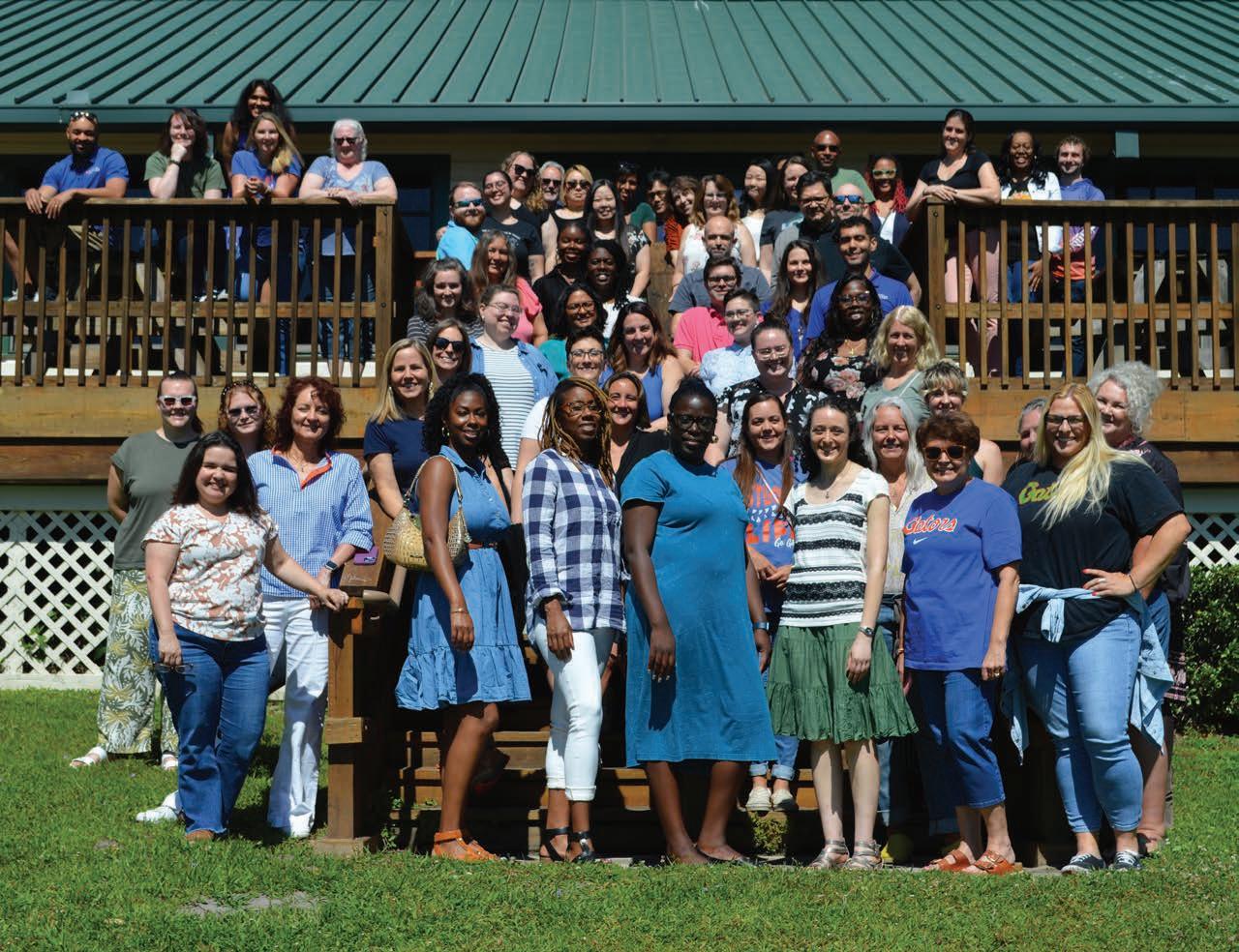
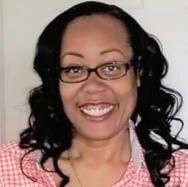
For the 2023-2024 academic year, the Counseling & Wellness Center (CWC) established new goals to support the strategic aims of the division of student life and our university. The CWC believes that the collegiate years is a period of transition, growth, and development, fostering habits and practices that impact personal wellbeing over the lifespan. Thus, the CWC aspires to broaden the support of our university community by working to cultivate and encourage mental health and wellbeing practices across the lifespan among students, faculty, and staff. The core goals of our strategic plan are 1) Education of students to support lifelong wellbeing; 2) Providing continuity of care for students to foster lifelong wellbeing, and 3) Empowering Student Life faculty, staff, and student employees to practice and support lifelong wellbeing. And it is with great pride that we highlight the significant strides and achievements we have accomplished in reaching these aims and furthering our efforts.
This year, to 1) educate students to support lifelong wellbeing the CWC expanded our energies to equip students with knowledge, skills, and strategies which promote development of healthy wellbeing practices for achievement of academic, professional, and personal goals. Through outreach programming and services, the CWC reached 21,921 students, faculty, and staff who engaged in a range of CWC workshops, presentations, and mental health awareness events. In Fall 2023, the CWC launched “FreshMentality”, a self-guided mental health training course focused on educating university students in their first -year on a range of collegiate mental health concerns impacting transition to college and beyond. We also implemented “De-Stress Fest”, a weeklong mental health event held during UF finals week to support students in coping with elevated stress which commonly occurs during this period. Our AWARE student mental health ambassador program also welcomed 13 new graduate students to help expand our education and promotion of healthy wellbeing habits among our graduate and professional students.
The CWC also continues to strive to 2) provide continuity of care for students to support lifelong wellbeing and with our Consultation, Assessment, & Referral Team (CART), we provided 3,184 consultation and assessment services for students. Our Case Management Team also facilitated clinical consultation and referral services for students with complex concerns, providing 1,548 appointments to connect students to on and off-campus resources critical to helping them mitigate impediments to personal wellbeing. And, through individual therapy, group counseling, and couples & relationship counseling, the CWC provided 31,383 clinical appointments for students.
The CWC is committed to 3) empowering Student Life faculty, staff, and student employees to practice and support lifelong wellbeing. This year our Suicide Education & Prevention program implemented “safeTalk”, a suicide prevention training to equip students, faculty, and staff with education to be more alert to someone thinking of suicide. They also hosted Suicide Prevention week reaching over 300 students who participated in suicide awareness activities and training. Our Alcohol & Other Drug Services program also made significant contribution in empowering students to develop and sustain healthy habits and behaviors by launching new initiatives like “Sober Tailgators” and “Sober Gators” which provides an opportunity for students to participate in university activities in sober spaces.
Our CWC team looks forward to continuing to serve in ways that positively impact the mental health and wellbeing of our university community. And it is with the dedication, passion, and commitment of our talented team members that we are able to achieve our goals of meeting the needs of our students, faculty, and staff.
Thank you to our CWC community for your service. And, to our fellow gators and friends, thank you for your continued support.
Warmly,
Rosa West, PhD Interim Director
UF CWC faculty and staff assist UF students cultivate their mental health and well-being in support of their personal, educational, and career development.


OLIVIA PITKETHLY, MA Consultation Team Coordinator
A brief consultation is a structured 20-30 minute meeting with a CWC mental health professional to gather information about a student’s concerns and goals.
We consider all the resources at the CWC to provide the best options for a unique situation. Additionally, our Consultation and Referral Team (CART) may suggest other on-campus partners for resources such as coaching or tutoring, or off-campus providers when students could benefit from more specialized and/or longer-term care. If services and support in our off-campus network are best for each individual’s needs, we will provide information on these options as well.
In 2022, CART surveyed 497 students regarding format preference for BCR appointments. Sixty-nine percent stated they preferred telehealth for BCR appointments. A majority of BCR appointments have been conducted via telehealth.
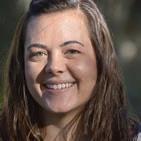
HAILEY BROWN, MA Case Management Team
At the CWC we have a team of highly trained clinical case managers to support students in finding mental health resources and services while addressing stressors in their lives that impact their mental health. Our case management team makes sure students have access to a wide range of local resources whether with mental health professionals at UF, in the Gainesville community, or in a student’s hometown.
During the 2023-2024 fiscal year, our clinical case management team expanded from 2 to 4 members. New administrative roles were introduced, including campus liaison and community provider liaison. These roles were designed to delegate tasks, enhance relationships, and foster referral sources both on-campus and within the community.
On average, clients were seen 4.65 times by their clinical case managers, with 74.5% receiving between 1 to 5 appointments. The average age of clinical case management clients was 22.88 y.o.
2023-2024 fiscal year
Team Contributions
• Clinical case managers spent 64.75 hours developing resources to support student success.
• Administrative tasks, such as emails, notes, and file organization, accounted for 526 hours of their time.
• Case management activities, such as file closures and client follow-ups, took up 334.50 hours
• Consultation with CWC clinicians for client support totaled 66.82 hours
• Internal meetings within the CWC amounted to 529.09 hours, while external meetings totaled 159.75 hours
• Clinical case managers dedicated 44.75 hours to Outreach initiatives, including workshops and campus events.
• Onboarding staff and practicum/intern students required 26.75 hours
3,184 BRIEF CONSULTATIONS
933 ON-CALL CLIENT CONSULTATIONS
1,548 CASE MANAGEMENT CONSULTATIONS ATTENDED BY STUDENTS
CONNECTING, SUPPORTING & REFERRING MULTIPLE MENTAL HEALTH
RESOURCES & SERVICES AT THE CWC, IN & OFF CAMPUS


July 1, 2023 to June 30, 2024
CWC provides a variety of counseling services, including group, individual, and couples. We use a short-term individual and couples counseling approach defined as a maximum of 12 sessions.
Couples counseling appointments Total number of appointments
Non-Client Consultations
(students, faculty, staff, family, community members, etc.)
Avg. # Individual counseling sessions per client
% of enrolled students seen at CWC
Case Manager Consultation Appts
Recalculated using 2023 formula ** 7.3 if including UF Online

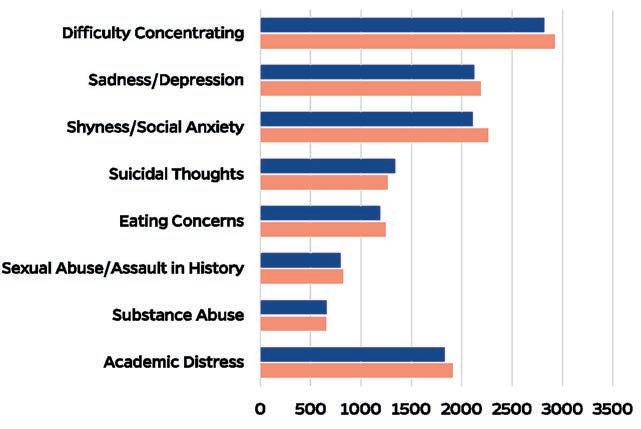
OTHER OR NO RESPONSE
1ST YEAR UNDERGRADUATE
3RD YEAR UNDERGRADUATE
5TH YEAR + UNDERGRADUATE
4TH YEAR UNDERGRADUATE
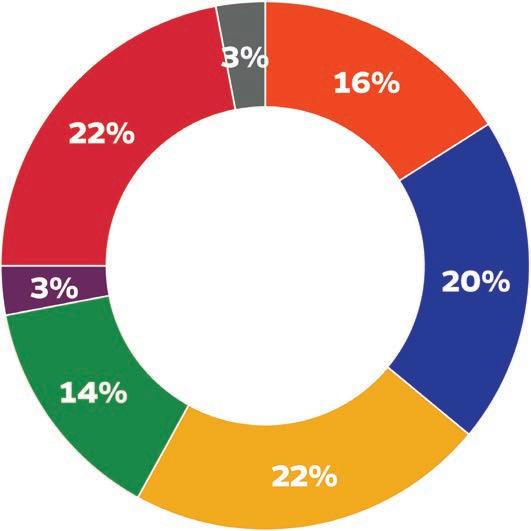
GRADUATE
STUDENT ACADEMIC STATUS USING CWC

STUDENTS SERVED
2ND YEAR UNDERGRADUATE

Academics
Career/Employment Discrimination/Harassment
Financial
Food/Housing Insecurity
Grief/Loss of Someone Health Concerns (others) Health Concerns (self)
Loneliness/Isolation
Mental Health
Missed Opportunites/Exper. Motivation/Focus Relationships
Other No Response
17,922
INDIVIDUAL COUNSELING SESSIONS
1,837
4,435
STUDENTS SERVED
ON-CALL APPOINTMENTS PRIOR COUNSELING EXPERIENCE
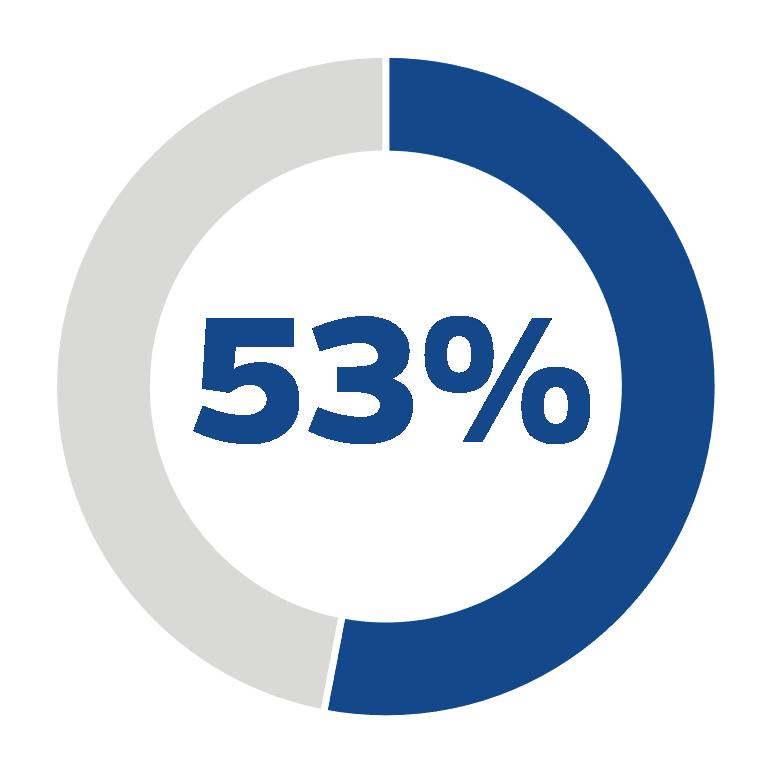

ZULLY RIVERA-RAMOS, PHD
Did you know that CWC is one of the leading providers of group counseling in collegiate mental health?
Group counseling is a primary service modality at the CWC! Research suggests that group counseling is as effective and, sometimes, more effective than individual counseling. Through offering group counseling, we can support and serve many more students than we could if we only offered individual counseling. Offering groups both in person and online has allowed for increased accessibility to quality mental health services!
During the 2023-2024 academic year the CWC offered 72 groups. The CWC continued to offer a wide range of groups including process, psychoeducational skillsbuilding, support, and peer support groups. Process groups are focused on providing emotional support and interpersonal learning and growth. We offered general process groups, as well as others with an additional focus on family of origin, creativity, or graduate students experiences, and one in Spanish (i.e., “¿Cómo Estás?”). For the first time, the Spanish group was offered in a long-term basis with several students continuing the group throughout the academic year!
Psychoeducational groups are geared toward teaching students coping skills and strategies (e.g., CBT, DBT, mindfulness, biofeedback) to address specific concerns, such as anxiety, social anxiety, depression, stress, ADHD, and emotional regulation. We also offered five new psychoeducational groups titled Wellness through Self Compassion, Social Anxiety Skills, Biofeedback for Anxiety, Connection Through Journaling, and Calming Anxiety with Creativity.
counseling.ufl.edu/groups
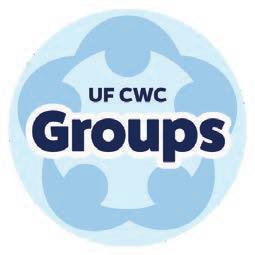
Support groups offer students the opportunity to connect with others who share similar lived experiences and/or identities in an empowering, supportive, and compassionate space. Students can be in community with others like them (e.g., graduate students, international students, highly sensitive students,) or who have experienced similar concerns (e.g., grief and loss, substance use).
We have continued to consistently offer a support group for international students in Mandarin and another in English.
Peer support groups, in which participants and facilitators learn together and from each other, are all intended to be alternatives to conventional counseling. The aim is to offer students opportunities to co-create relatively safe spaces to dialogue about their experiences with respect for each other’s worldviews and choices. Students who participate in these groups often move toward living in more creative, meaningful, engaged, and productive ways!
The wide variety of groups we offer, allows us to meet the ever-evolving needs of our students. There was an average of 4 members in attendance at each group session across all semesters.
During the academic year, the CWC logged over 1,505 more client hours than if each group leader saw two (2) individual clients instead for the same period. Thus, the robust group program allows more UF students to be seen for counseling, provides them the best service to meet their concerns, and offers a service not easily accessible in the community or at other counseling centers.
Counseling groups

A total of 113 group members from the Fall and Spring semester groups (N=54) completed a survey about their group counseling experience at the CWC. Among the students who completed the survey, 75% reported attending at least seven (7) sessions or 10.5 hours of group counseling, with groups being offered for 5-15 sessions a semester! Below are some highlights about what students agreed or strongly agreed regarding their experience:
The group leader(s) were responsive to the group member’s feedback: The group leader(s) helped the members discuss differences and work through conflict/differences effectively:
The group leader(s) created a safe and supportive group environment: I felt engaged in the group and able to participate as much as I desired: I am satisfied with the quality of my group counseling experience: Group improved my overall well-being: Group helped me learn ways to work through my problems: Group helped me improve my ability to communicate and interact with others. Given my experience, I would recommend group to other UF students.
What aspects were the most helpful?
Hearing about experiences and emotions others have had that are similar to mine. Getting reflections from other members about what they see and how they feel/react to my experiences.
I really liked our group dynamic, and everyone was honest and vulnerable. The leaders provided a space where everyone was validated, listened to and valued…. This group transformed [my] self-judgment to self-compassion and appreciation for who I am. I really enjoyed the group experience.
Being able to share common feelings and experiences with people in my shoes. Feeling less isolated and uniquely alone in my situation as a result.
The encouragement of more direct confrontation, the lack of dismissal or harsh correction/judgment, and the focus on understanding more than directly intervening were very much appreciated.
What did you learn about yourself from the group experience?
I learned that I tend to compare myself to others too much, and that I rationalize my emotions a lot. I think that…. maybe I might be scared of getting hurt….
I learned that I don’t really try to actively engage and that I should try to open up to my peers.
I learned much more about myself and my identity. I learned about how to move through some really challenging things and how to bring my true identity into the world.
I have learned how to name my emotions and experiences better and have come to better understand my reactions to certain situations.
I learned that my problems aren’t just my own, and a lot [of] people probably suffer from the same things I do. It makes me feel more normal.
What do you wish you had known about group before you joined?
That I would feel so relieved and supported after going each week. How much hearing other people’s experience really helps you deal with your own problems.
I wish I had known [about] this group and…. probably got to attend this kind of group earlier in my time [at] UF. Participating [in] this group is one of the most beneficial experiences I have [had at] UF.
To make a great effort to always attend group, I really regret missing a few sessions.
Knowing the number of people in the group would have prepared me for how intimate it was going to be
How open everyone is to understanding and supporting one another.
This group was the best group experience I’ve had at the CWC. [The facilitators]…. effortlessly created a welcome and supportive environment for all the members and I never felt like I was asking too much of the leaders or other members. I felt incredibly connected with everyone and the group was the highlight of my week.
The facilitators were incredible, and their openness and overall dynamic made it feel like a safe space to open up and share my experiences without feeling like I was being judgedeither by them or the other participants
I would absolutely recommend this group to other students. It was an experience that helped me step outside of my comfort zone and escape the monotony of academic life sometimes!
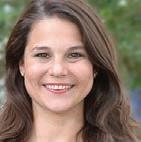
KELSEA VISALLI-BETTAG, PHD
Assistant Diresctor of Psychological Testing
The Assessment Program is a part of the Training program and focuses on providing quality supervision and training of advanced practicum students and psychology interns in providing psychological assessments (adhd, learning concerns, differential diagnosis) to students. The Testing Program supervised 4 total advanced practicum students and five interns involved during the 2023-2024 year.
During the March 2024 fiscal year, our testing team hired a new Assistant Director of testing. Over the past year, student awareness of ADHD has seemed to increase, leading to a high inquiry of students interested in psychological testing. Due to the limited spaces available for testing, our testing program prioritizes students who have been referred by ongoing clinicians who have identified a number of executive functioning concerns that is impacting them in several life domains (most commonly academic and socially). Additionally, several psychology interns have provided brief assessments, which was an initiative developed between the assessment program and Student Health Services to support students who are working with a psychiatrist, who the pro-vider believes may also have an attention deficit hyperactivity disorder. This process was devel-oped in an effort to increase the number of students able to receive support and accommodations for ADHD.
Intern testing/assessment hours: Adv. practicum testing/assessment hours:
Total trainee testing/assessment hours: TESTING & ASSESSMENT
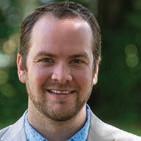
PHILIP DANIELS, PHD, LMHC, NCC, BC-TMH
Embedded Counselor
Embedded mental health counselors not only connect with students providing counseling, support, and advocacy in various levels of needs. Embedded counselors work with administration teams, crisis support, provide consultation, training, discussions and video introductions for faculty and staff in various departments. Other outreach activities include mental health presentations, publications and training of student ambassadors.

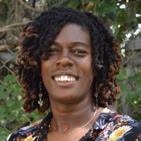
Outreach Assistant Director
From 2023-2024, CWC reached 21,921 campus and community stakeholders
Our CWC providers used creative interventions and programs to aid students in improving their mental health and developing skills to enhance well-being to support achievement of academic goals. Outreach programming was studentbased, focusing on common collegiate concerns and providing opportunities for personal growth among UF students and the campus community at-large. Programs included Gator-2-Gator peer support services training, FRESHMentality, Geeky Gator, Therapeutic Horticulture, and much more!
CWC’s workshops and presentations program provides UF students, faculty and staff an opportunity to learn new skills to strengthen personal resilience, develop healthy self-care habits, and grow their mental health awareness.
Topics include (but are not limited to), “Morning Mindfulness Practice”, “Bereavement Space Drop In”, “Power of Self Compassion”, and “Journaling for Self Discovery”.
Other Campus Community (non-DSA, non-academic, non-student, ex. UPD, Library)
Professional Org (non-UF, ex. NAMI, NFPA)
Student or Student Org
This year the CWC offered 673 workshops & presentations, serving 10,404 students, faculty, and staff.
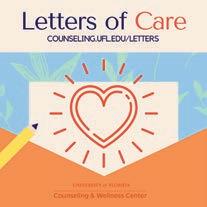
CWC’s Letters of Care (LOC) program is a unique way for Gators to connect with peers and receive compassion, support, and understanding from a fellow student.
LOC was developed as an opportunity for UF students to receive asynchronous peer support from a UF students trained in emotional support and helping skills. UF students can submit a request for a letter of care which is responded to by one CWC’s AWARE Ambassadors. Our CWC Care Bears provide responses to submissions like…
“I’ve been feeling very down about my life and future recently. It feels like there are a lot of life changes for me ahead that is causing anxiety and I would love a letter to offer some support :) thank you!”
“Im an international student away from home. I feel terrible as Im out of my parents and husband. I married recently before joining as a graduate student. And we applied for his visa ad got rejected. I need to make up my mind”
“I have been feeling very depressed lately. I miss my family every day. My friends and I seem to be growing apart, and I feel lonely constantly. My mental health is affecting my school performance and my physical health as well. It is my last year at UF, and I feel like I should be enjoying it more. I just need some encouragement to keep going and get through at least the semester.”
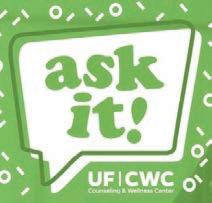
CWC’s Ask-It! is an online program that allows students to ask mental health questions and have them answered by a CWC associate.
“Ask It!” provides responses to a range of inquiries, such as when to ask for help, how to manage day-to-day stress, how to support a fellow Gator, existing resources for addressing mental health concerns, etc.
This year our Ask-It counselors received mental health related questions from UF Students, like…
“Can you describe the current mental health services offered at UF? What are the current mental health needs of UF students? What are the biggest challenges UF faces in addressing the mental health needs of UF students?”
“Does the CWC do testing for ADHD or autism?”
“I’m not really sure what I should do. I’m having lots of relationship problems and I’ve devolved into someone who’s just angry a lot and I end up yelling at her and saying and doing things I don’t want to do. I think it comes from not feeling heard because I never talk to anyone but my girlfriend, especially about feelings. So I’m at a loss, I think I need help but I’m not sure.”
13,410
STUDENTS or STUDENT ORG
673
WORKSHOPS & PRESENTATIONS
3,337
# OF OUTREACH HOURS
MENTAL HEALTH
RESOURCES & SERVICES AT THE CWC, IN & OFF CAMPUS
counseling.ufl.edu/outreach
Mental health services and programs at CWC are constantly promoted through our presence on UF campus at tabling and events, print, promotional, and digital material, website (counseling.ufl.edu), podcast (CWC Talks), CWC newsletter (874 subscribers) and social media (#UFCWC).
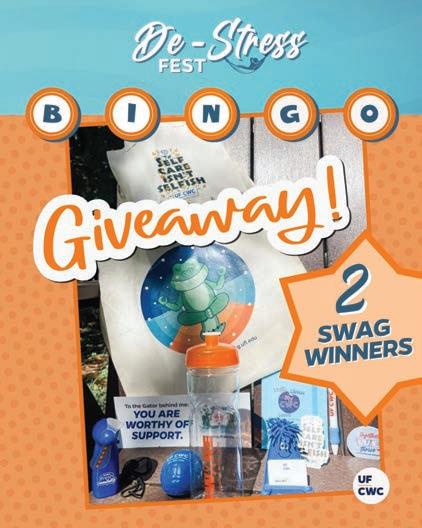
CWC adopted a platform-specific strategy for Instagram. While we maintain a cross-posting presence on Facebook to reach parents and alumni, our primary focus shifted to Instagram, which is tied in 2nd place with Tiktok for top social media used among our target demographics.
Instagram: Recognizing the importance of content shareability, we shifted our primary feed strategy towards relatable, humorous, and trendy content. This approach compels students to share our posts with their mutuals, effectively expanding our reach beyond immediate followers. Our Stories now serve as a dynamic space to highlight upcoming events and workshops within a 48-hour window, maximizing their visibility for students seeking immediate support.
Additionally, we have embraced the popularity of Reels, incorporating trending audio and formats to capture students’ attention and compel them to share it with their peers.
The CWC’s social media extends beyond simply promoting services and events. We tackled crucial student well-being topics like mindful drinking, managing burnout, and what to expect during counseling appointments. Additionally, we highlighted the benefits of group counseling continue to dispel the common misconceptions surrounding group.
posts: 513 (+376)
followers: 863 (total 3,728)
impressions*: 805,645 (+731, 270)
The number of times your content, whether a post or a story, was shown to users.
Clicks from IG: 567 (+372)
3,728
GATOR-2-GATOR GATOR-2-GATOR
counseling.ufl.edu/g2g Students Supporting Students
The Counseling & Wellness Center (CWC) continues to provide UF students with the opportunity to receive peer support from a fellow Gator through our Gator-2Gator (G2G) program. Gator-2-Gator is a peer support service where student can receive personal support, problem-resolution assistance, and/or referral information about helpful resources within the UF campus community. Student concerns range from anxiety, academic stress, loneliness, relationship concerns, etc. Students can register to be trained Gator-2-Gator ambassadors or attend any one of the offered consultation spaces. Gator-2-Gator with the CWC has seen over 30 students trained to provide support.
This past year the CWC developed a Gator-2-Gator training program to enable our campus stakeholders (e.g., Academic Departments, Student Organizations, etc.) to provide peer support within their own groups. For FY 2023-2024 we welcomed the College of Public Health & Health Professions and Honors College students.

UFGIFT International Initiatives Coordinator
UF GIFT is a collaborative effort among campus partners (e.g., International Center, Housing, English Language Institute, Student Legal Services, Career Connection Center, GatorWell, Graduate School, School of Business, Care Team, etc.) who interact with international students on a regular basis, with the goal of supporting international students through providing consultations, holding workshops, facilitating cross-departmental communications, responding to crisis, and identifying needs and challenges. During the 2023-2024 academic year, UF GIFT has offered the following workshops and events for international students:
SUMMER
• Summer Fun for International Gators
• Relationship Building: Meeting with President of Korean Student Association
• GradStart Orientation
• College of Journalism Outreach
FALL 23
• Pool Time at the Reitz for International Students
• International Tea Time (collaboration with Office of Asian Pacific Islander Desi Student Engagement)
• F-2 Spouses Support Space (collaboration with Housing)
• Thrive in A New Culture (workshops)
• Boba and Mindfulness (collaboration with Office of Asian Pacific Islander Desi Student Engagement)
• Consultation with a student from the School of Journalism
• International Student Success Series: From Arrival to Achievement (week-long event)
• Pool Time at the Reitz for International Students
• International Tea Time (collaboration with Office of Asian Pacific Islander Desi Student Engagement)
• F-2 Spouses Support Space (collaboration with Housing)
• Consultation with Director of Office of Asian Pacific Islander Desi Student Engagement
• De-Stressing and Sleep Hygiene (collaboration with Office of Asian Pacific Islander Desi Student Engagement)
• Thrive in A New Culture (workshops)
• Relationship Building: Meeting with President of Taiwanese Student Association

EBONY OKAFOR, PHD
Assistant Director, Outreach
AWARE Grad is the extension of the AWARE program, created to advocate for the mental health awareness and wellbeing of graduate and professional students here at the university and provide a supportive space for professional development. In 2023-2024, 13 new graduate ambassadors joined the team.
Grad Ambassadors increased social media interactions while also partnering with the undergraduate ambassadors during the Fall Wellness Fair. Ambassadors also participated in sponsored University events for graduate students where they were able to connect with over 50 UF graduate students.

AWARE is CWC’s mental health ambassador program. In 2023-2024, we had 37 ambassadors raising mental health awareness on campus through tabling, presentations, social media interaction and workshops.
The ambassadors also published The AWARE Zine, an online magazine aimed at sharing creative inspirations concerning mental health with students. Ambassadors continued to stay focus on expanding partnerships across campus community such as connecting with student athletes.
From March 25th – 29th 2024 the AWARE Ambassadors hosted UFisAWARE Week a week-long event designed to raise awareness about mental health at the University of Florida. Each day students were able to “Zoom-in” or drop by in person to participate in mental health-related activities, receive information, and participate in giveaways. Over UFisAWARE Week, the ambassadors reached over 200 UF students who participated in:
• Healthy Habits
• Physical Health Day
• Major Diversity Day
• Multicultural Mental Health
• Art Day
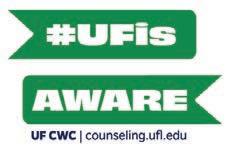
Ambassadors raise mental health awareness on campus through tabling, presentations, social media interaction and workshops.
On November 7th, 2022 On October 31st, 2024 AWARE Ambassadors collaborated with various campus stakeholders and student organizations to provide a Fall Wellness Fair where they were able to reach over 75 UF students. Ambassadors focused on promoting self-care and raising awareness about mental health through participation in fun and connective activities.

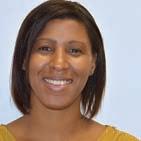
STEFANIE JASPER ROMIE,
The CWC’s Alcohol and Other Drug Services promotes a safe, non-judgmental, and psychoeducational environment where students can come and gain an understanding and perspective regarding their choices related to alcohol and other drugs. It is our hope that these services will provide students an opportunity to evaluate their substance usage; make changes to support healthy decisions and choices; and provide supports for those in recovery.
The UF Collegiate Recovery Program (CRP) is an initiative supported by UF Counseling and Wellness Center and Gatorwell. The CRP is a space for students in recovery to connect; socialize; access resources to support their recovery; and creating a community and sense of belonging for Gators in Recovery.
During the 2023-2024 academic year AOD services were provided through consultations, individuals, group therapy, and workshops. Outreach tabling events provided opportunities to connect with students and provide education on drinking responsibly; the sober curious movement; becoming a recovery ally; and promoting our Sober Social and Sober Tailgates which help build a community for those that support being sober and Gators in Recovery.

1,032
STUDENTS SERVED
Total students served 2023-2024 academic year
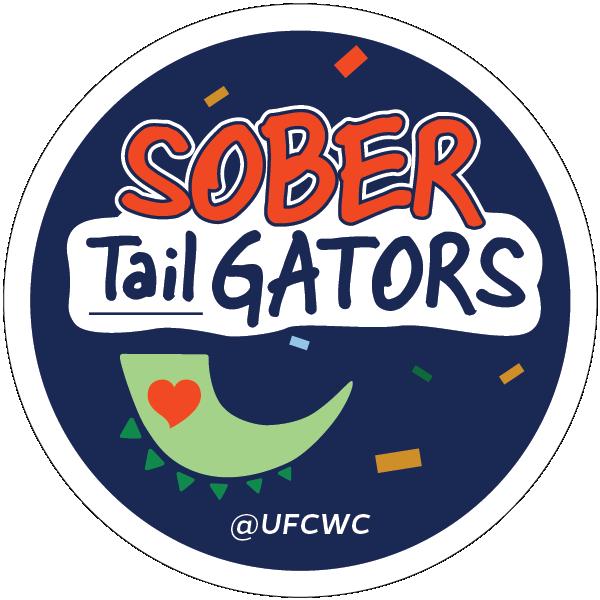
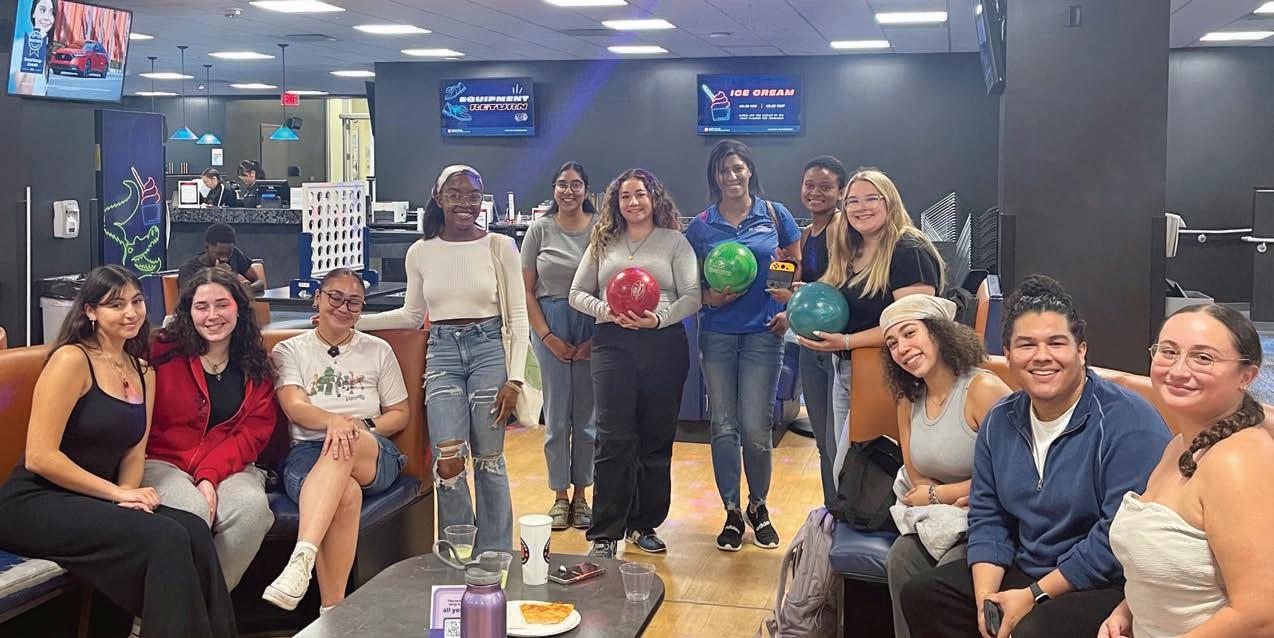
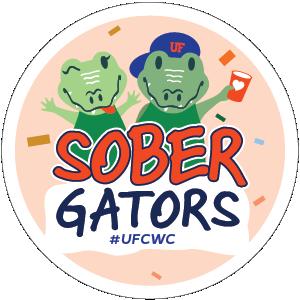
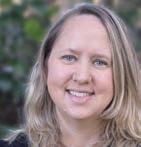
AMY CRANDALL
Suicide Prevention & Education Coordinator
During the 2023-2024 Academic Year, Suicide Prevention has focused on finding ways to expand their efforts on bringing awareness to suicide prevention.
For the 2023-2024 academic calendar year, we received and facilitated 9 QPR (Question, Persuade, Refer) trainings (275 people trained). We also offered monthly QPR trainings as part of CWC workshops for UF students, staff, and faculty throughout Fall, Spring and Summer semesters (total of 20 people trained). With loneliness being of concern to college students in distress, a loneliness workshop was also offered monthly to continue to aid in suicide prevention.

SafeTalk, a four-hour training course, geared towards helping people gain more awareness of how to help someone who is thinking of suicide was implemented this year. Throughout the 2023-2024 academic year three SafeTalk trainings were facilitated, training a total of 51 people. Suicide Prevention helped facilitate the ASIST trainings, which focuses on teaching skills to recognize signs and symptoms of suicide and help the person in distress get support. One ASIST training was provided and 25 UF staff and faculty signed up for the training. In July 2024, the SafeTalk Training for Trainers was held and 18 people became trainers.
Throughout the academic year, Suicide Prevention has also been a part of the Suicide Prevention Task Force prevention research biweekly team meeting. Suicide Prevention has also been actively networking with various stakeholders to increase awareness on suicide prevention.
Suicide Prevention has worked closely with various campus departments including but not limited to: Student Housing, CIME, UF Office of Sorority and Fraternity Life, Engineering Department, Recreational Sports, GatorWell, and International Center. Suicide Prevention has provided more than 10 hours of consultation services assisting in exploring ways to increase awareness on how to better help students in distress across campus.
Suicide Prevention also provided information on the Crisis Support Family Portal. Suicide Prevention also assisted with the JED Campus post assessment. Along with Human Resources, Suicide Prevention also assisted with developing a system for UF faculty and staff to identify signs of distress in students. More than 115 staff and faculty have completed the Supporting Students in Distress Module.
Outreaches have also been provided to various stakeholders focusing on bringing awareness to CWC services and how to support students in distress.
For suicide prevention week (09/11/23-09/15/23) the theme was “Gator Wellness Toolbox”. Throughout the week students had the opportunity to engage in activities focused on self-care, commemoration, and growth. We reached more than 300 students with our efforts on bringing awareness to suicide prevention.
CWC also participated in the American Foundation for Suicide Prevention Walk in November. Various CWC faculty and staff participated in the walk.
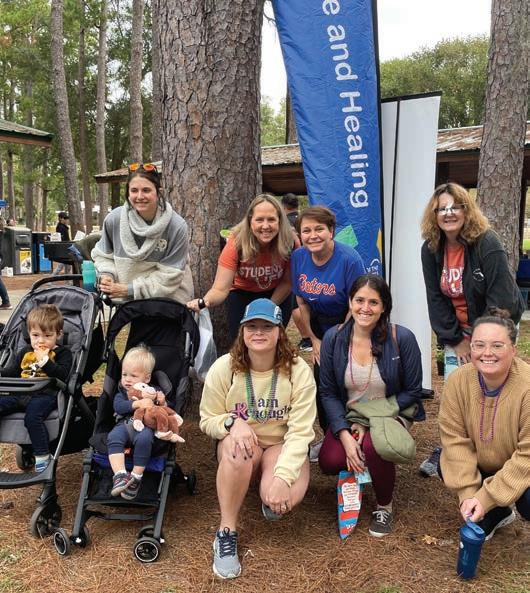
Another initiative from suicide prevention was the bathroom initiative in housing where various “How to Bounce Back” posters with a QR code with CWC information were placed in bathroom stalls in residential halls (please post examples of the flyers used for the bathroom, I did include a picture of the flyer in the bathroom) to add support for students in crisis. The “How to Bounce Back” flyers with information on CWC resources and suicide prevention were also translated into multiple languages to better accommodate various student population needs.

counseling.ufl.edu/suicide-prevention
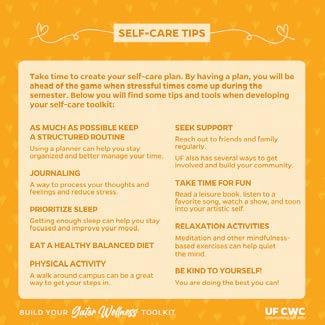


The Counseling and Wellness Center’s Suicide Prevention & Education program is a campus-wide outreach and education program focused on the prevention of suicide through training.


NATASHA MAYNARD-PEMBA, PHD Associate Training Director
The CWC’s training program is an integral part of our mission at UF. We aim to develop counselors and psychologists who are clinically and ethically competent, with strong skills in serving a diverse public (American Counseling Association & American Psychological Association).
Our program utilizes competency and standards-based training to ensure the highest quality experience for our trainees. Most of our trainees are UF students completing clinical requirements for their master’s or doctoral degrees. We also support the continued development and competency of our staff through providing continuing education programs.
Prac/adv
Prac/adv
1,485
839
Our psychology internship program is designed to facilitate the transition from student to professional through training seminars, clinical experiences, and supervision.
The program has been accredited by the American Psychological Association since 1982 and is the oldest among university counseling centers in Florida. It has been reaccredited every 5-7 years and recently received full reaccreditation status for the next 10 years.
For the 2023-2024 academic year our program received 65 applications from across the US and Canada for 5 positions. Interns came from the University of Florida, Nova Southeastern University, Brigham Young University, University of Maryland at College Park, and the Chicago School of Professional Psychology-Los Angeles. Virtually all interns complete their internship with job placements across the country, in both academic and practice settings.
This year our interns secured jobs at several sites including The University of Florida, New Mexico State University, and Texas Tech University. Our interns also supervise trainees earlier in their development, and therefore support UF’s Counselor Education and Counseling Psychology students in their professional training.
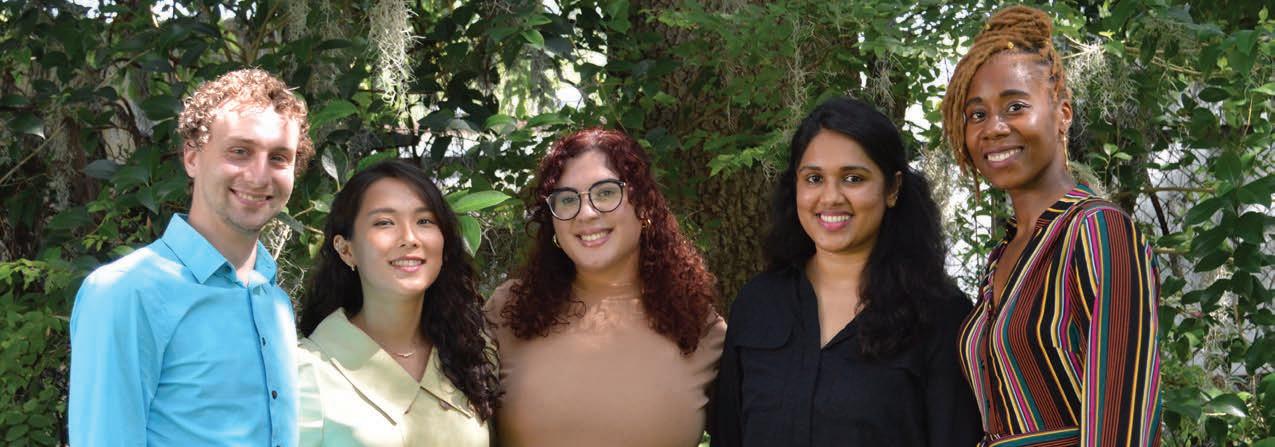
We also have thriving doctoral practicum/advanced practicum and master’s specialist internship programs that serve UF’s academic needs by providing Counselor Education and Counseling Psychology students a high-quality training environment to complete their experiential requirements.
This year we had several part-time student positions, which included: 5 Practicum, 5 Generalist Advanced Practicum, 4 Testing Advanced Practicum, and 5 Group Advanced Practicum students.
Our training testing clinic for advanced practicum students provides psychological testing evaluations for UF students who may be experiencing a learning disability or ADHD.
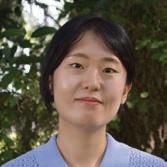

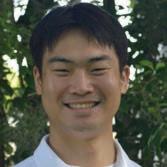


Practicum Doctoral Students

The CWC sponsored 16 CE workshops for on-going staff professional development, some of which were: Suicide Assessment and Intervention, What Clinicians Should Consider When Assessing for Violence: Laws, Rules & Ethics, Conflict Coaching and Facilitation, and Medical Errors: Increasing Patient Safety in Different Populations.
The CWC also partners with the Florida Psychological Association and a state-wide University consortium to provide even broader access to continuing education for staff and to facilitate collaboration with staff from other Florida Universities.
The CWC’s counselors also teach classes at UF, helping support our students and the academic mission of the university to provide a top-quality education. Some of the courses taught included Professional Skills in Counseling, Research in Counseling, Career Development, Substance Abuse Counseling, Marriage and Couples Counseling, and Group Supervision in Agency Counseling.

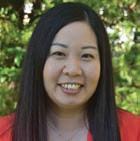
SHINLAY RIVERA, PHD
Associate Director, of Crisis & Emergency Resource Center (CERC)
The CWC’s Crisis and Emergency Response service is an emergency consultation service providing faculty and staff walk-in emergency service for students and crisis and behavioral-health training for Student Life, academic and public safety personnel.
After
After
939 CLIENT EMERGENCY CONSULTATION APPOINTMENTS
1,629 AFTER HOURS CALLS TO PROTOCALL
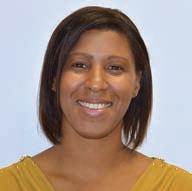
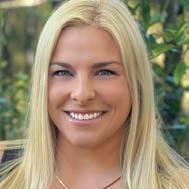
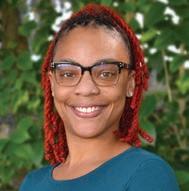


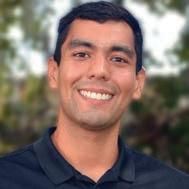

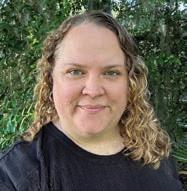
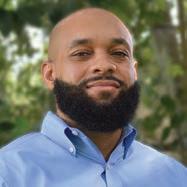

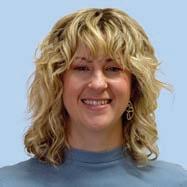
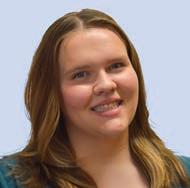
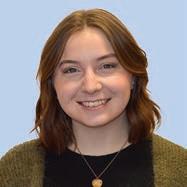
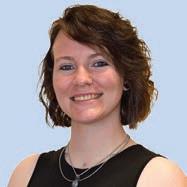
STUDENT ASSISTANTS
Sofia Abadi
Amanda Bunn
Ruth-Ann Creary
Calista Hidalgo
Quang Dat Hoang
Carter Hood
Gabrielle Keller
Alexis Klepper
Sarah Marsicek
Lauren McDonald
Erin Simon
Gabriel Wick SUPPORT
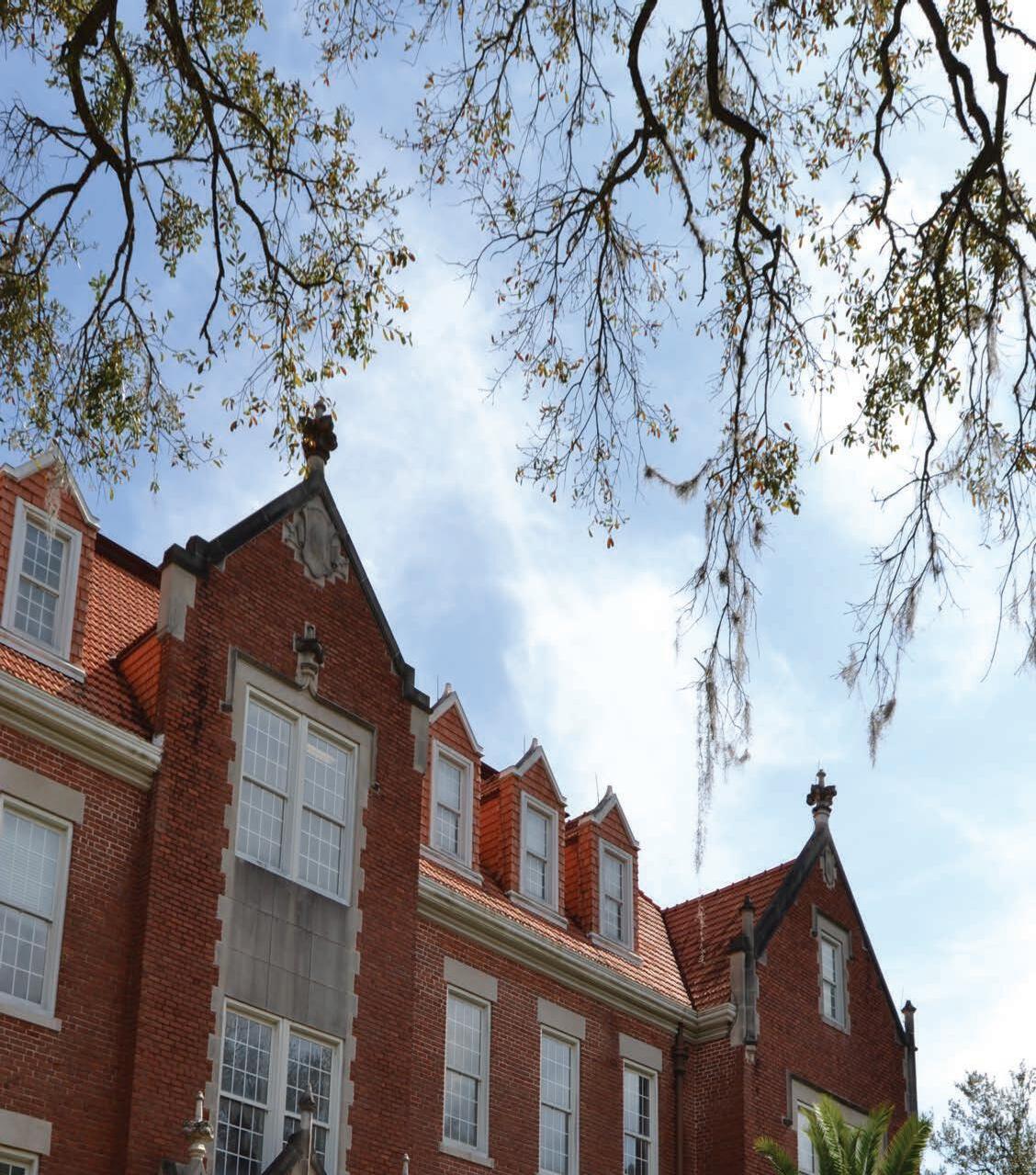
LOCATIONS:
CWC PEABODY HALL, 4th FLOOR: 1500 Union Rd Gainesville, FL 32603
CWC RADIO ROAD: 3190 RADIO ROAD, GAINESVILLE, FL 32611

CRISIS/URGENT WALK-IN HOURS: Monday–Friday, 9am–4pm
OFFICE HOURS: Monday–Friday, 8am–5pm
Tel: 352-392-1575 counseling.ufl.edu